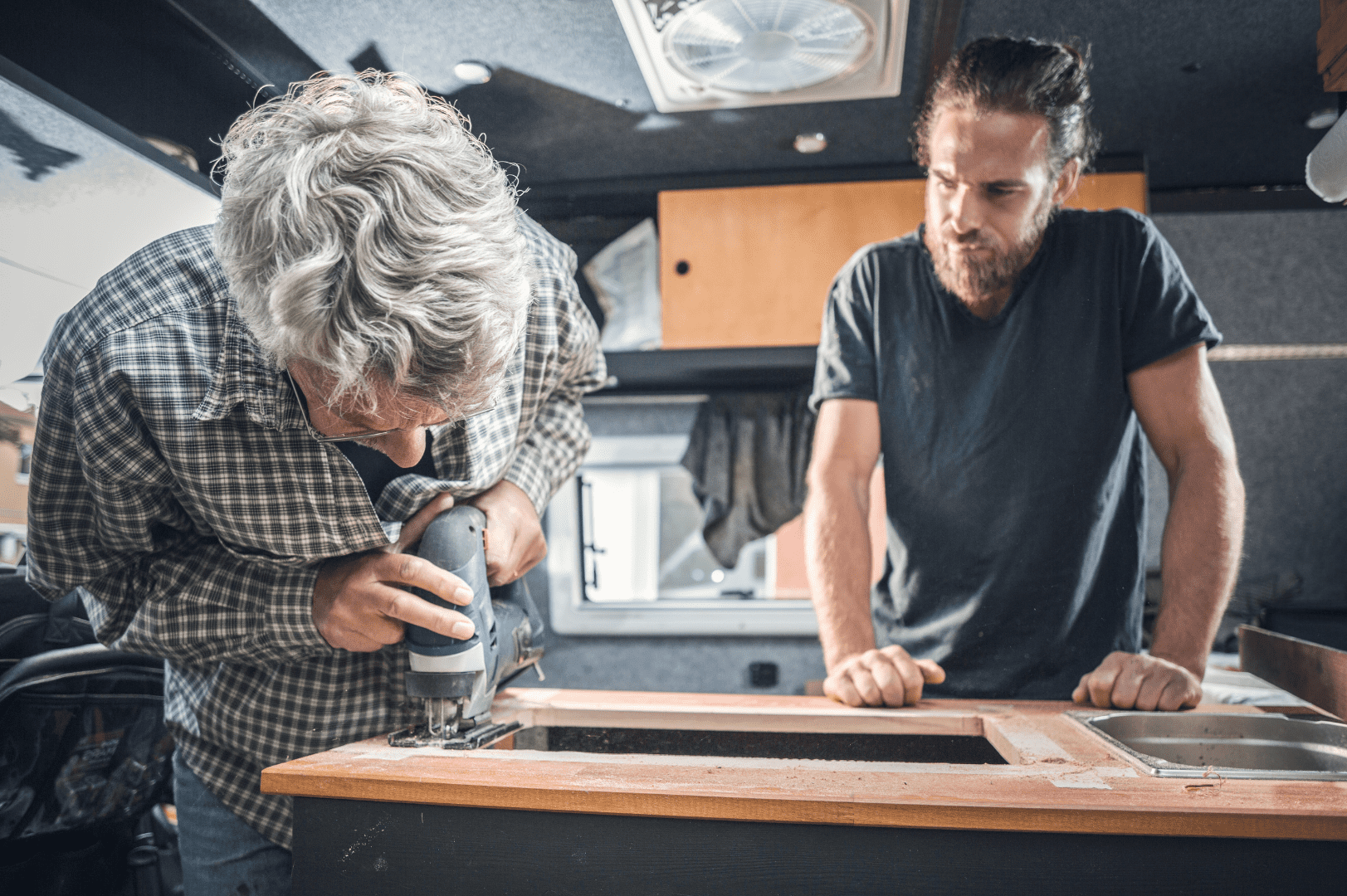As a motorhome owner, you need to subject your vehicle to certain inspections to ensure that you and your passengers are safe. In this guide, we’ll explain the two main types of safety inspections for motorhomes: MOTs and habitation checks.
Motorhome MOTs
A motorhome MOT determines whether your vehicle is safe for driving. It follows a strict checklist of criteria set by the Driver and Vehicle Standards Agency (DVSA).
MOTs are a legal requirement. If you’re caught driving your motorhome without a valid MOT by the police, you could receive a £1,000 fine – unless you can prove you’re driving to a pre-booked test. What’s more, having a valid MOT certificate is a requirement of most insurance policies. In this case, you wouldn’t be able to make a claim should you get into an accident.
It would be an understatement to say that a valid MOT certificate is a must-have for your motorhome. Yet, you need to make sure you get the right kind.
What type of MOT does your motorhome need?
The best way to find out which MOT you need is to check how your motorhome is classified on your vehicle logbook (V5C) and consult with an MOT specialist.
In general, motorhomes that are registered with the DVLA as ‘motor caravans need a Class 4 MOT. This is the standard test for most cars or vehicles with up to eight passenger seats and weighing up to 3,000kg. That being said, you won’t be able to get a Class 4 MOT in the following circumstances:
- If your motorhome is a converted vehicle and isn’t clearly a motorhome
- If your motorhome carries items that aren’t necessary for living in a motorhome, then your vehicle could be classed as a ‘goods’ vehicle
In either of these circumstances, your motorhome’s weight determines the type of test that you need.
If your motorhome weighs less than 3,500kg, you’ll need to get a Class 7 MOT – the category for goods-carrying vehicles up to this weight limit. In this case, your motorhome will need its first MOT three years after registration.
However, if your motorhome weighs more than 3,500kg, you’ll need to get a HGV MOT. Motorhomes that fall into this category need testing annually starting 12 months after their registration.
What does a motorhome MOT include?
During your test, your mechanic will check your motorhome for problems in the following areas:
- Registration plate
- Lights
- Steering
- Suspension
- Windscreen, wipers and washer bottle
- Horn
- Seats
- Seatbelts
- Fuel system
- Exhaust and emissions
- Bodywork
- Doors
- Mirrors
- Wheels
- Tyres
- Brakes
Although an MOT itself doesn’t include any repairs or replacements, you might need to get these following the inspection to pass the test. After the MOT is complete, you will receive a pass or fail along with a corresponding certificate.
Motorhome habitation checks
As well as MOT, you also need a motorhome inspection for the ‘back end’ or living area; this is called a habitation check. It uses a standard checklist to investigate the condition of the appliances and facilities in your vehicle – telling you how safe it is to spend time and travel inside it.
Why are habitation checks important?
Unlike an MOT, there are no legal requirements for you to have a habitation check for your motorhome or campervan. The only time that you’re required to get one is if your motorhome insurance requests one or if you hire your vehicle out to other people.
Since they aren’t strictly necessary, it isn’t uncommon for owners to forgo them – especially owners of self-converted vans. All the same, getting habitation checks is an important part of owning a motorhome for many reasons. Most importantly, they keep you and your family safe. But, as you’ll see, that isn’t the only reason you should get one.
Firstly, many manufacturers insist on annual motorhome inspections for the first 3-5 years after purchase as part of the terms of your vehicle’s body warranty. Similarly, many insurers won’t provide explosion cover unless you have the certificates to show that inspections have taken place – though this will be specific to your provider.
Habitation checks also help you to preserve the value of your motorhome, as most buyers look for vehicles with a full service history. Moreover, knowing the condition of your motorhome lets you fix any small issues before they become more expensive, saving you money over the long term.
Now you know why habitation checks are important – so what exactly do they cover?
What do habitation checks cover?
In short, a habitation check will highlight any safety or performance-related issue present in your motorhome’s living space. The engineer who carries out your motorhome’s habitation check will work methodically through a long list of checks.
At the end, you will have a list of actions to make your vehicle safe, as well as a habitation certificate for you to keep in your motorhome.
- Electrical systems: The engineer will ensure that both your 12V and 230V electrical systems are working correctly with no issues, including but not limited to the operation of the charging circuits, all lighting and sockets, as well as fuses, circuit breakers and residual current devices. They’ll also check the condition of your leisure battery.
- Gas systems: The gas safety part of a motorhome habitation check is one of the most important. This is due to the risks associated with carbon monoxide poisoning. The engineer will check for any existing gas leaks and ensure that the gas regulator can maintain pressure and a sufficient level of flow.
- Water systems: Your engineer will check the water systems in your motorhome. First, they’ll drain out the water. Then they’ll refill the tank so that they can check that the water is being supplied and pumped through correctly, without any leaks.
- Damp checks: Check using a moisture meter to check your motorhome’s internal walls, ceiling and floor for any signs of damp damage, excessive moisture or water ingress. The engineer will also check the bodywork and underbody for damaged seals and cracked panels that could let in water.
- Fire and safety: Habitation checks also include a full test of all the fire safety measures in your motorhome, such as emergency exits, the different types of fire detectors for motorhomes, fire extinguishers and fire blankets.
Protect your motorhome
It’s important that you stay up to date on the two main types of motorhome inspection. They aren’t just about getting out of late MOT fines or void manufacturer warranties. More importantly, they give you peace of mind that you and your loved ones are safe as you take to the road.
This reassuring effect is something motorhome inspections share with quality motorhome insurance coverage. They both let you enjoy your home away from home to its fullest, knowing that you’ve done everything that you can to safeguard your family and your investment.
Here at Comfort Insurance, we have decades of experience in all things motorhome. If you’d like us to help you find a policy that’s perfect for you, just call our friendly team on 0208 984 0666 or email us at info@comfort-insurance.co.uk – or, if you’d prefer a free quote, fill in our online form today.













